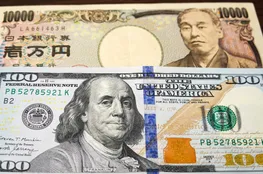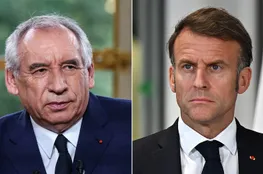Trade wars won’t save workers. A new economic order can. Gabor Scheiring Assistant Professor of Comparative Politics at Georgetown University Qatar On May 12, the United States and China announced that they are putting reciprocal tariffs on pause for 90 days. Some tariffs will be retained while trade negotiations continue, a joint statement said. This is yet another reversal of the sweeping tariffs US President Donald Trump imposed in early April that destabilised the global economy and sent stock markets into freefall. Although he claimed that his measures would make the US economy “boom”, it was clear from the start that they would not work. A trade war cannot improve the lot of American workers, nor bring back manufacturing into the country. Now spooked by corporations slashing profit targets and reports of the US gross domestic product (GDP) shrinking, the Trump administration appears to be walking back on its strategy. But going back to economic liberalism under the guise of “stability” is not the right course of action. The current global economic system, distorted by policies favoring the rich sustained over decades, has proven itself to be unsustainable. That is why we need a new world economic order that promotes inclusive and sustainable development across both the Global North and South and addresses global socioeconomic challenges.
The crisis of liberal globalization The troubles that economies around the world currently face are the result of policies the elites of the Global North imposed over the past 80 years. In its original Keynesian vision, the economic order put forward by the Allied Powers after World War II aimed to combine trade, labor, and development best practices to foster inclusive growth. However, over the following few decades, corporate opposition in the US and Britain derailed this order, replacing it with a skewed system centered around the Global North’s chief economic instruments, the World Bank and the International Monetary Fund, both created in 1944. In the 1970s, economic elites blamed rising inflation and stagnation not on temporary shocks like the oil crisis but on what they saw as excessive concessions to organized labor: government overspending, strong unions, and heavy regulation. Subsequently, they launched an institutional counter-revolution against the Keynesian model of power sharing and social compromise. This counter-revolution took shape in the 1980s under US President Ronald Reagan and UK Prime Minister Margaret Thatcher, who aggressively pursued policies to restore corporate profitability. They slashed taxes on the wealthy, liberalized international capital flows that made it easier to relocate production to low-cost economies, deregulated the financial sector, weakened labor unions, and privatized public services. As a result, outsourcing of labor, tax evasion, real estate speculation, financialisation, and credit-fuelled bubbles became US corporations’ dominant ways of making profit.
In developing countries, the IMF, the World Bank and regional development banks pushed governments to cut public spending, privatise state-owned enterprises, remove trade barriers, and deregulate markets rapidly and with little regard for social consequences. As a result, the 1980s and 90s became lost decades for many countries embracing globalisation through radical liberalisation. These policies triggered massive employment shocks, rising inequalities, skyrocketing debt and persistent financial turbulence from Mexico to Russia. East Asian economies were the exceptions, as they learned to circumvent the straitjacket of liberal globalisation and joined the global economy on their own terms. The biggest beneficiaries of this system were Western economic elites, as corporations profited from low-cost production abroad and domestic deregulation at home. The same cannot be said for Western workers, who faced stagnating real wages, eroded labour protections, and increasing economic insecurity under the pressure of competitiveness, relocation, and automation.
Illiberal economic policy is doomed to fail For those of us who studied the post-war economic order, it was apparent that without correcting the pitfalls of liberal globalism, a nationalist, illiberal counter-revolution was coming. We saw its signs early on in Europe, where illiberal populists rose to prominence, gaining a foothold first in the periphery and then gradually scaling up to become Europe’s most disruptive force. In the countries where they gained power, they pursued policies superficially resembling developmentalism. Yet, instead of achieving genuine structural transformation, they fostered oligarchies dominated by politically connected elites. Instead of development, they delivered rent-seeking and resource extraction without boosting productivity or innovation. Trump’s economic policies follow a similar path of economic populism and nationalistic rhetoric. Just like illiberal economic policies failed in Europe, his tariffs were never going to magically reindustrialise the US or end working-class suffering. If anything, tariffs – or now the threat of imposing them – will accelerate China’s competitive edge by pushing it to deepen domestic supply chains, foster regional cooperation, and reduce reliance on Western markets. In the US, the illiberal response will drag labour standards down, eroding real wages through inflation and propping up elites with artificial protections. Furthermore, Trump has no real industrial policy, which renders his reactive trade measures completely ineffective. A genuine industrial policy would coordinate public investment, support targeted sectors, enforce labour standards, and channel technological change towards good jobs. His predecessor, President Joe Biden, laid the foundations of such an industrial policy agenda in the Inflation Reduction and CHIPS acts. However, these programmes are now under attack from the Trump administration, and their remaining vestiges will not have a meaningful effect. Without these pillars, workers are left exposed to economic shocks and excluded from the gains of growth, while the rhetoric of reindustrialisation becomes little more than a political performance.
Without stronger cooperation between national and multilateral public finance institutions and better tools to tax and regulate corporations, governments could regain the capacity to create stable, well-paying jobs, strengthen organised labour, and tackle inequalities. This is the only way for American workers to regain the quality of life they aspire to. Such progressive multilateralism would be a powerful long-term antidote against illiberal populism. Achieving this shift, however, requires building robust global and regional political coalitions to challenge entrenched corporate interests and counterbalance the existing liberal, capital-driven global framework. The challenge is clear: not only to critique Trump’s destructive policies but to present a bold, coherent vision of industrial renewal, ecological sustainability, and global justice. The coming months will show whether anyone is prepared to lead that transformation.
























